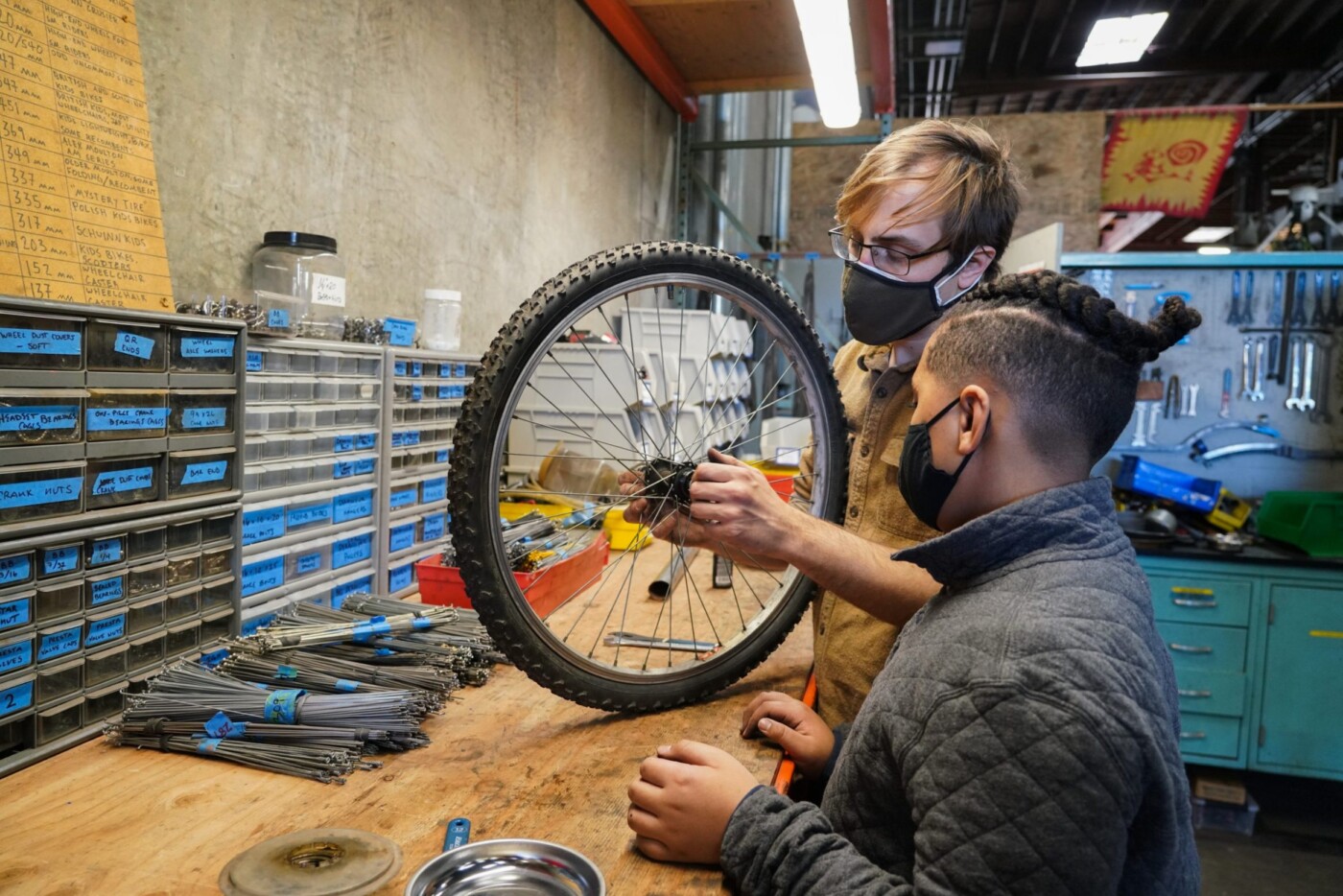There’s a lot to be said for having your own wheels — and even more for knowing how to fix them.
An Oakland nonprofit is helping low-income youths do both, not only teaching them the basics of bicycle maintenance and repair but sending some home with the bike they worked on if they don’t already own one.
Known as The Crucible, the organization offers an eclectic array of fine and industrial arts classes for both young people and adults ranging from blacksmithing, ceramics and jewelry making to welding and woodworking.
In addition to its extensive menu, the nonprofit holds free Earn-A-Bike sessions for young people ages 10 to 18. Those from West Oakland households with an annual income of $20,000 or less have first dibs on enrollment; kids from elsewhere in the city are next in line followed by students who live in the greater Bay Area.
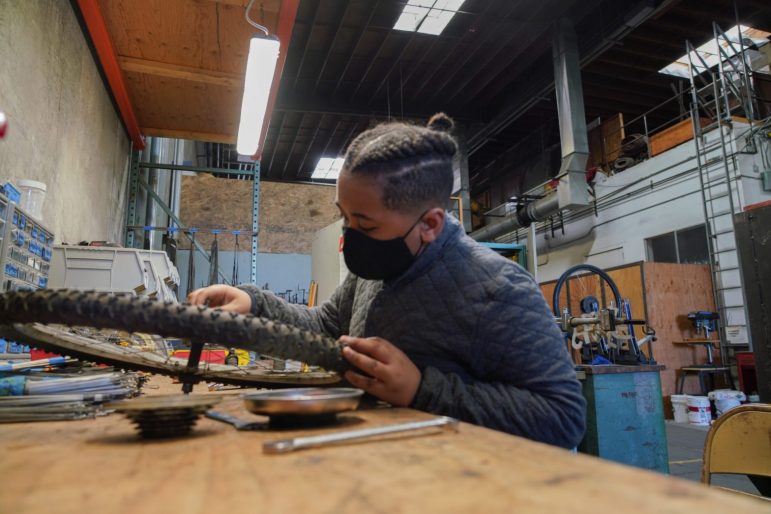
During the three-hour, twice-weekly classes, up to half a dozen participants spend one month learning how to adjust seats and handlebars, align brake pads, fix broken spokes as well as replace wheels and inner tubes.
Some work on their own bicycles; others practice changing flat tires, switching out brake cables and fine-tuning gears on used bikes that are donated to The Crucible.
The training equips them to do repairs that otherwise might not be available to them, said Natasha von Kaenel, director of marketing and e-commerce.
“There are not that many affordable or even existent bike shops in the West Oakland area,” she said.
Some of the rewards are intangible: Kids who have been housebound for months because of the pandemic are glad to get out of the house and make new friends in the class, said bike shop department head Jared May.
And the chance to take a break from online studies and work with their hands ultimately can make them better students.
“For a lot of learners, hands-on instruction is what gets them excited about … concepts like science, technology, engineering, math,” von Kaenel said. “(Those) experiences help youth feel connected to the world. They’ve just been so isolated.”
All three of the youngsters currently in May’s class are working on bicycles that benefactors gave the organization — gifts run the gamut from road and mountain bikes to tricycles — and each will be taking one home.
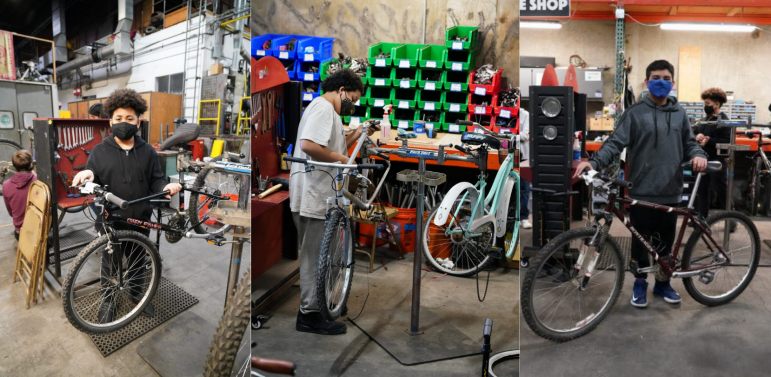
And as they learn skills, such as how to use a wrench, their faces light up.
“They don’t expect it to be so interesting,” May said. “But once we take (the bike) apart and they see how it works, they end up really enjoying it and finding it pretty interesting.”
Take 16-year-old Adamaris Umanzor, who recalls the pride she felt after rebuilding a bicycle by herself.
“When I had to take off the wheel it was very hard and stubborn,” she said, noting that the job required muscles.
“Usually the man of the house does it and just having … that empowerment, you know? (That feeling of) ‘I can do this, too,’” Umanzor said. “I had a light feeling in my chest. Zooming back and forth through the area, showing (the bike) off to everybody — it was just, like, proudness.”
Von Kaenel echoes the teen’s sentiments.
“The feeling that young people get when they realize that they can take something apart and put it back together and have it work better than it did before … is an empowering educational experience,” she said.
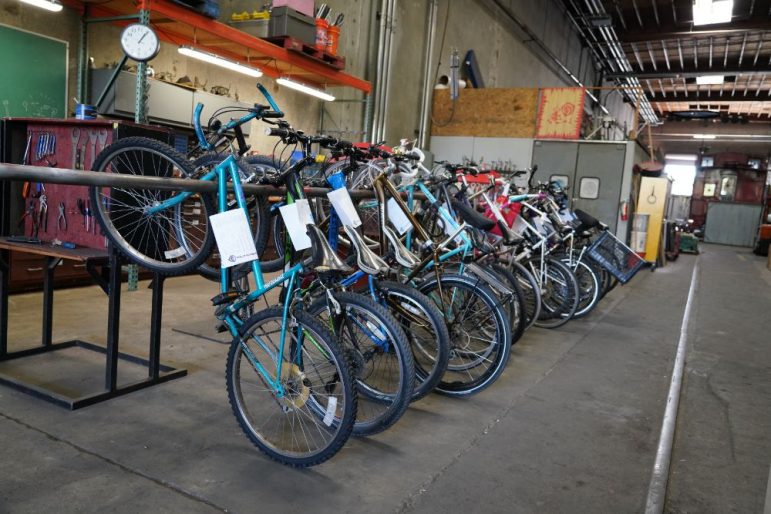
Earn-A-Bike also gives young people an independence some haven’t had before.
“The bike can transform the life of a young person,” said von Kaenel, explaining that West Oakland’s flat topography makes it easy for teens to pedal here and there on their own instead of relying on a parent to chauffeur them. “It opens up where they can go.”
May notes that a plant nursery contacted The Crucible earlier this year asking for several bicycles because some of its interns lacked transportation and were having trouble getting to the job site on time.
Earn-A-Bike obliged and it made all the difference.
“They said it was a game changer in terms of timeliness and attendance,” May said.
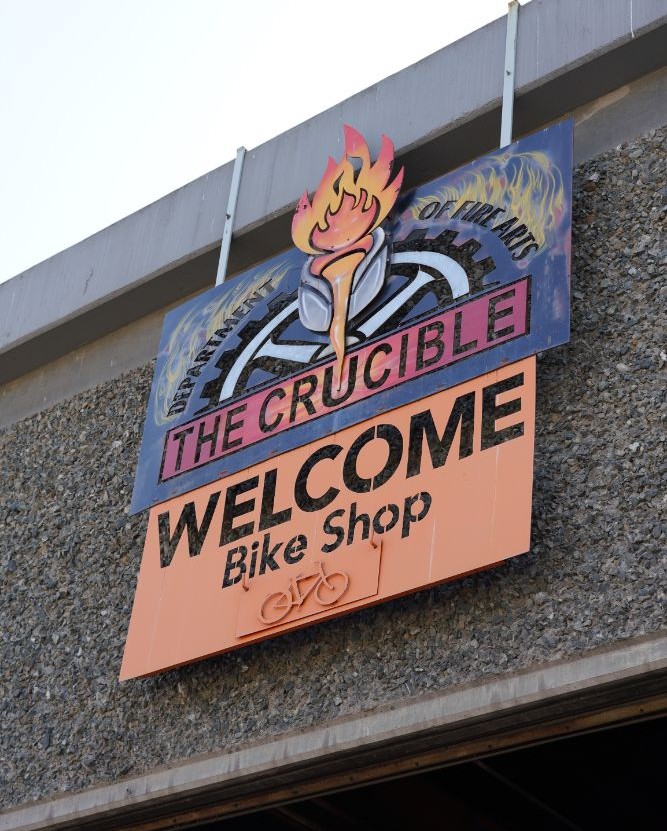
And having a bicycle to call one’s own beats being beholden to public transportation.
“Waiting for the bus or BART, it’s tough — especially right now,” May said. “Biking in the fresh air, especially with COVID, is preferable to being jammed in a bus with however many strangers.”
For the past 16 years, The Crucible’s bike shop also has been home to Bike Fix-A-Thon, a regular event that offers free repairs for all ages.
People drop off their bikes and pick them up a week later; during that time, volunteers get them back in working order.
Several hundred people took advantage of the opportunity in 2018 and 2019.
If a bicycle needs more TLC than they can provide, cyclery workers try to replace it with an already refurbished set of wheels and strip the old one for parts, von Kaenel said.
Anyone who needs free help fixing a bike is invited to drop off their wheels between noon and 3 p.m. on May 16 at the next Fix-A-Thon. Click here for more details.
Those who know a thing or two about bicycles and enjoy young people can support The Crucible’s bike programs by volunteering. Click here to apply.
